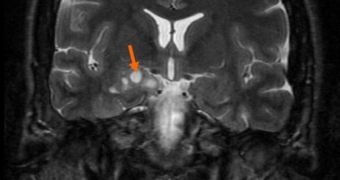The brain-blood barrier is arguably the most advanced line of defense our bodies have against infection. Its goal is to pose an insurmountable obstacle to parasites and pathogens seeking to make their way from the blood into the sensitive tissue of the brain. The barrier is therefore composed of a chemical maze of unbelievable complexity, and this is something that’s not always as useful as you would first think.
Scientists at the Rensselaer Polytechnic Institute (RPI) say that barrier is so good at what it does that it also prevents various drugs from reaching the brain, and treating cancer. A team of experts from the Institute has therefore taken it upon itself to develop a new tool in the fight against cancer, by conditioning the blood-brain barrier to work with the scientists, rather than against them. If drugs can be made to pass through this obstacle, than researchers would finally have a way of targeting brain tumors directly. This would increase the effectiveness of all currently-available drugs several times over, the RPI group argues.
The goal of the RPI team is developing treatments for a particularly-lethal type of brain cancer called diffuse malignant glioma. The condition cannot be successfully addressed with any existing medication, and this is why it has gained top priority with the research group. The team is led by RPI Department of Chemical and Biological Engineering assistant professor Pankaj Karande. The research was recently made possible through a $100,000 grant from the Goldhirsh Foundation.
“There are a number of good drugs available for treating glioma, but our problem is that getting any drug into the brain is a huge challenge. Nature designed the blood-brain barrier to protect us from harm, and it’s very good at its job. When you attempt to treat patients with brain ailments, the blood-brain barrier recognizes most drugs as foreign molecules and keeps them out. We’re trying to develop a method to elegantly, safely, and reproducibly open up the blood-brain barrier, so we can introduce drugs into the brain,” the group leader explains.
“Currently, the best therapy for brain surgery involves removing the part of the brain that is malignant or tumorous. In the case of diffuse glioma, however, the cancer is so widespread that you can’t remove it – you’d have to remove, effectively, the entire brain. If we are successful in breaching the blood-brain barrier and delivering drugs straight to the brain, it could have a tremendous impact in the fight against cancer, as well as other chronic conditions such as Alzheimer’s disease, Parkinson’s disease, epilepsy, and traumatic brain injury,” the expert concludes.

 14 DAY TRIAL //
14 DAY TRIAL //